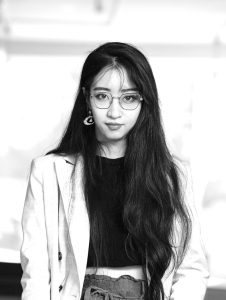
Yutong Bai, a fourth-year computer science PhD student, has been named a 2023 Apple Scholar in AI/ML (artificial intelligence and machine learning). She is one of just 22 graduate students at universities around the world to be recognized by the fellowship program this year.
Bai, who earned a bachelor’s degree from Northwestern Polytechnical University in Xi’an, China, works with the Computational Cognition, Vision, and Learning group under the direction of Bloomberg Distinguished Professor of Cognitive Science and Computer Science Alan Yuille. Prior to joining Johns Hopkins, she interned at Google Brain and Meta AI.

Her doctoral research is focused on artificial computer vision systems. Computer vision allows robotic systems to see, process, and respond to their environment; for example, underwater robots recognizing objects on the ocean floor, or smart cars detecting traffic lanes and other vehicles.
In recent work, Bai has developed computer vision models based on self-supervised learning—a powerful method of pretraining AI models that is particularly useful for tasks that do not require labels, such as image recognition.
In traditional supervised learning, an image is paired with a label, such as “dog,” and the model is trained to recognize this association. However, Bai’s work focuses on training the model before using labeled data. During this pretraining phase, the model performs tasks that do not require human-labeled data. For example, the model may identify whether an image has been rotated or breaks an image down into jigsaw-style pieces. By successfully completing these tasks, the model gathers fundamental knowledge that it can apply to other tasks.
“This is similar to how young children learn about the world around them. They may not know what an apple is, but they learn that objects can be placed near the mouth. When they are taught that an apple is an edible object, they quickly understand the concept because they have already built up a foundation of knowledge,” says Bai. “By using self-supervised learning, models can acquire a similar foundation of knowledge and avoid making silly mistakes.”
Additionally, Bai’s research spans a variety of topics related to advancing what is known as explainable AI, a field that aims to gives designers and users a better understanding of why and how an AI system made its decisions.
Each Apple Scholar in AI/ML will receive support for their research and academic travel for two years, internship opportunities, and a two-year mentorship with an Apple researcher. Bai is the second Johns Hopkins graduate student to receive the recognition.




